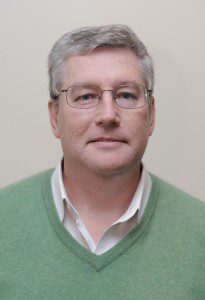WESTFIELD – At-large Councilor David A Flaherty is seeking a third term to continue his fiscal conservativism campaign.
Flaherty identifies the major concerns of city residents as “taxes and spending. People feel over-taxed and think that government doesn’t spend their money prudently and on the right priorities.”
Flaherty has argued during his tenure that municipal budgets are “unsustainable” and city residents face “snowballing debts and obligations.
“The city cannot do all the things it needs to do, nor take care of the “wants”, unless it has a strong realistic sustainable budget,” Flaherty said. “For the last several years, we’ve been spending more than we take in, and we have been deferring huge obligations onto future generations of taxpayers (to the tune of over $15 million per year). I’ve produced a couple of videos that explain the problems with our city budgets.”
“We need to control the growth in spending, start reserving part of the budget to pay for the unfunded long-term obligations, and work with the unions to adjust retiree benefits for future hires and control growth in labor costs so that we have funds necessary to pay for the benefits we’ve already promised,” Flaherty said.
“We, the city leaders, have to work with the state legislature to ensure that state aid keeps up with the recurring increases in costs, or at a minimum at least 2.5 percent, Flaherty said. ” We have to aggressively pursue funding for unfunded (state and federal) mandates. We can’t keep passing the buck (to property owners). We have to make the hard decisions now.”
Flaherty said that much of the traffic congestion in the city today is due to poor planning decades ago.
“We should have designed and constructed the roads for trucks before we allowed the building of the warehouses,” Flaherty said.
“We should redesign and reconstruct roads that lead to the northside warehouses so that the roads are safe for trucks, cars, bikes, and pedestrians and evaluate options for reducing the truck traffic in residential areas,” Flaherty said.
“As far as services go, after security (fire and police), utility infrastructure is the next highest priority,” Flaherty said. “We need to adequately budget for the maintenance of the buildings, parks, and other infrastructures we have. It’s cheaper in the long run to do proper maintenance than it is to let something decay and then have to rebuild it.”
Flaherty said the city needs to foster economic development, but to foster that development to complement the city, not exacerbate existing problems.
“We have to be realistic about our strengths and weaknesses,” Flaherty said. “We have to honestly compare our city to appropriate alternatives for each potential new large business development project we pursue.
“We have to sell to our strengths, be realistic about our shortcomings, and be willing to pass on deals that are not in the best interests of the residents and other businesses.
“We should have high goals, but they should be based on reality, not fantasy,” Flaherty said.


